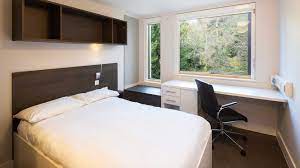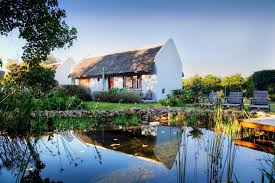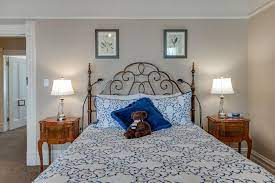Accommodation: Your Gateway to a Memorable Journey
When embarking on a journey, finding the perfect accommodation is essential. It sets the tone for your entire experience, providing a haven of comfort and relaxation after a day of exploration. From luxurious hotels to cozy bed and breakfasts, the options are endless. So, what makes accommodation such an integral part of our travel experience?
First and foremost, accommodation offers us a space to unwind and recharge. After hours spent exploring new sights or attending business meetings, returning to a comfortable room can feel like a breath of fresh air. A well-appointed bed, crisp linens, and amenities that cater to our needs can make all the difference in ensuring a good night’s sleep.
Moreover, accommodation serves as our home away from home. It provides us with a sense of familiarity amidst unfamiliar surroundings. Whether it’s a welcoming reception area or friendly staff ready to assist with any request, these small touches can make us feel cared for and at ease.
Accommodation also plays a significant role in shaping our overall experience by reflecting the local culture and environment. From boutique hotels that showcase local artistry to traditional guesthouses nestled in quaint villages, each establishment offers its unique charm. Staying in accommodations that embody the spirit of the destination allows us to immerse ourselves fully in its essence.
Furthermore, accommodations act as gateways to local experiences. Many establishments offer concierge services or knowledgeable staff who can provide insider tips on nearby attractions or hidden gems off the beaten path. They become valuable resources for discovering authentic local cuisine, cultural events, or outdoor adventures that may not be found in guidebooks.
In recent years, there has been an increasing demand for sustainable accommodations that prioritize eco-friendly practices. Travelers are now seeking establishments that minimize their environmental impact through initiatives such as energy conservation, waste reduction, and support for local communities. Choosing such accommodations allows us to contribute positively to the destinations we visit and leave a smaller carbon footprint.
Ultimately, accommodation is more than just a place to lay our heads at night. It is an integral part of our travel experience, shaping our memories and leaving a lasting impression. Whether we seek luxury, simplicity, or a unique cultural immersion, the right accommodation can elevate our journey from ordinary to extraordinary.
So, as you plan your next adventure, take the time to carefully select your accommodation. Consider the location, amenities, and ambiance that align with your travel goals. Whether it’s a charming B&B in the countryside or a sleek urban hotel with stunning city views, let your accommodation be the gateway to an unforgettable journey.
Frequently Asked Questions About Accommodation: A Comprehensive Guide
- What is the meaning of staying in accommodation?
- What does no accommodation mean?
- What means accommodation room?
- What are examples of accommodation?
- Which is correct accomodation or accommodation?
- What is the example of accommodation?
- What is hotel accommodation?
- What is accommodation in tourism?
- What accommodation means?
What is the meaning of staying in accommodation?
Staying in accommodation refers to the act of residing or lodging in a place that provides temporary shelter or lodging facilities. It involves booking a room, suite, or any other type of living space for a specific duration of time, typically during travel or when away from one’s permanent residence. Accommodation can encompass various types of establishments such as hotels, motels, bed and breakfasts, guesthouses, resorts, hostels, vacation rentals, and more. The purpose of staying in accommodation is to have a comfortable and convenient place to rest, relax, and sleep while away from home.
What does no accommodation mean?
“No accommodation” typically means that there is no availability or provision for lodging or housing at a particular place or during a specific time period. It indicates that there are no rooms, apartments, or other forms of accommodation available for booking or rental. This could be due to various reasons such as fully booked establishments, temporary closures, or unavailability of accommodations in a particular area.
What means accommodation room?
An accommodation room refers to a specific space within a lodging establishment, such as a hotel, guesthouse, or bed and breakfast, that is designated for guests to stay in during their visit. It is a private area where individuals or groups can rest, relax, and have their own personal space.
An accommodation room typically includes essential amenities such as a comfortable bed or beds, linens, storage options (such as closets or drawers), seating areas, and often a private bathroom. The size and layout of the room can vary depending on the type of accommodation and the category of room chosen (e.g., standard room, deluxe suite).
In addition to the basic amenities, many modern accommodation rooms are equipped with additional features to enhance guests’ comfort and convenience. These may include televisions, mini-fridges, coffee/tea makers, work desks, complimentary toiletries, Wi-Fi access, and more.
When booking accommodations online or through travel agencies, you will often come across different types of rooms available for selection. These options can range from single rooms designed for solo travelers to larger family rooms or suites that can accommodate multiple guests.
It’s important to note that the specific features and facilities offered in an accommodation room may vary depending on the establishment’s standards and the price category of the room. It’s always advisable to review the room description and amenities list before making a reservation to ensure it meets your needs and preferences.
What are examples of accommodation?
Accommodation comes in various forms, catering to different preferences and budgets. Here are some examples of common types of accommodation:
- Hotels: Ranging from budget-friendly options to luxurious five-star establishments, hotels offer a wide range of amenities such as room service, on-site restaurants, fitness centers, and more.
- Bed and Breakfast (B&B): These cozy establishments provide comfortable rooms along with a homemade breakfast. B&Bs often have a more intimate atmosphere and are usually located in residential areas or countryside settings.
- Guesthouses: Similar to B&Bs, guesthouses offer comfortable rooms but may not always include breakfast. They are typically smaller in scale and may be family-run, providing a more personal touch.
- Resorts: Ideal for those seeking a comprehensive vacation experience, resorts often feature extensive facilities such as pools, spas, restaurants, and recreational activities. They can be found in beachfront locations or nestled within scenic landscapes.
- Hostels: Popular among budget travelers or backpackers, hostels provide affordable shared dormitory-style accommodation with communal areas for socializing. Private rooms are sometimes available as well.
- Vacation Rentals: These include privately owned properties such as apartments, cottages, villas, or houses that can be rented for short-term stays. Vacation rentals offer the comforts of home with added privacy and flexibility.
- Campgrounds: For outdoor enthusiasts or those seeking a closer connection to nature, campgrounds provide designated spaces for pitching tents or parking recreational vehicles (RVs). Facilities often include shared bathrooms and cooking areas.
- Boutique Hotels: Characterized by their unique design aesthetics and personalized service, boutique hotels offer a more intimate and curated experience compared to larger chain hotels.
- Serviced Apartments: Suitable for longer stays or those desiring more space and independence, serviced apartments provide fully furnished units with kitchen facilities and housekeeping services.
- Homestays: In homestays, travelers stay with local hosts in their homes, allowing for cultural exchange and an immersive experience in the destination. This option provides a glimpse into the daily lives of locals.
These are just a few examples of accommodation options available to travelers. The choice depends on individual preferences, travel goals, and budget considerations.
Which is correct accomodation or accommodation?
The correct spelling is “accommodation.”
What is the example of accommodation?
Accommodation can come in various forms, catering to different preferences and budgets. Here are a few examples of common types of accommodation:
- Hotels: Ranging from budget-friendly options to luxurious five-star establishments, hotels offer a wide range of amenities such as room service, concierge services, fitness centers, and on-site restaurants.
- Bed and Breakfasts (B&Bs): These are typically smaller establishments that provide cozy rooms and a homemade breakfast. B&Bs often offer a more intimate and personalized experience.
- Guesthouses: Similar to B&Bs, guesthouses are usually family-run accommodations that offer comfortable rooms and shared common areas. They often provide a warm and welcoming atmosphere.
- Hostels: Popular among budget travelers or backpackers, hostels offer dormitory-style rooms with shared facilities like bathrooms and communal kitchens. They provide an opportunity to meet fellow travelers from around the world.
- Vacation Rentals: This category includes apartments, cottages, villas, or houses that can be rented for short-term stays. Vacation rentals often provide more space and privacy compared to traditional accommodations.
- Resorts: Located in scenic destinations such as beachfronts or mountain retreats, resorts offer comprehensive amenities like pools, spas, restaurants, and organized activities for guests.
- Campgrounds: For nature enthusiasts or those seeking an outdoor experience, campgrounds provide spaces for tents or RVs with basic facilities like toilets and showers.
- Boutique Hotels: These are typically smaller-scale hotels with unique designs or themes that offer a more personalized experience compared to larger chain hotels.
- Serviced Apartments: Ideal for longer stays or business travelers, serviced apartments combine the comfort of a home with hotel-like services such as housekeeping and 24-hour reception.
- Eco-Lodges: These accommodations prioritize sustainable practices by minimizing their environmental impact through initiatives like renewable energy use or organic farming practices.
These examples represent just a fraction of the wide range of accommodation options available to travelers. The choice ultimately depends on individual preferences, travel goals, and budget considerations.
What is hotel accommodation?
Hotel accommodation refers to the provision of lodging services for travelers and guests. Hotels are establishments that offer paid accommodations on a short-term basis, typically ranging from a few nights to several weeks. They provide a range of amenities and services to ensure the comfort and convenience of their guests.
Hotel accommodations vary in size, style, and level of luxury. They can range from small boutique hotels with a few rooms to large chain hotels with hundreds of rooms and extensive facilities. Each hotel typically offers various types of rooms, such as standard rooms, suites, or specialty rooms, catering to different guest preferences and budgets.
The amenities provided by hotels may include private bathrooms, comfortable beds with quality linens, televisions, Wi-Fi access, workspaces, minibars, room service, fitness centers, swimming pools, restaurants or dining options, concierge services, and more. Higher-end hotels often offer additional features such as spas, business centers, conference facilities, or even on-site entertainment.
Hotels also prioritize guest safety and security by implementing measures such as 24-hour front desk service and surveillance systems. Many hotels have established cleaning protocols to ensure cleanliness and hygiene standards are maintained throughout the property.
Booking hotel accommodation can be done through various channels such as online travel agencies (OTAs), direct hotel websites or apps, or via phone reservations. Guests are usually required to provide their personal details and payment information at the time of booking.
Staying at a hotel provides travelers with a convenient and comfortable base during their travels. It allows them to relax in a private space while having access to essential services that enhance their overall experience. Hotel accommodation is widely available in popular tourist destinations around the world and caters to different travel needs and preferences.
What is accommodation in tourism?
Accommodation in tourism refers to the establishments or facilities that provide lodging and related services for travelers. It encompasses a wide range of options, including hotels, resorts, bed and breakfasts, guesthouses, hostels, vacation rentals, and more. Accommodation plays a crucial role in the tourism industry as it serves as a temporary home for travelers during their stay away from their usual place of residence.
In tourism, accommodation serves several purposes beyond simply providing a place to sleep. It offers a space for relaxation and rejuvenation after a day of exploring tourist attractions or engaging in business activities. Accommodation also serves as a base from which travelers can plan and organize their itinerary, access information about the destination, and seek assistance from staff or concierge services.
The types of accommodation available vary greatly depending on factors such as location, budget, and preferences. Luxury hotels cater to those seeking upscale amenities and personalized services, while budget accommodations like hostels or motels provide affordable options for budget-conscious travelers. Vacation rentals offer the opportunity for travelers to experience a home-like environment with self-catering facilities.
Accommodation establishments often strive to create unique experiences for their guests by incorporating local culture, architecture, or design elements into their properties. They may also offer additional amenities such as restaurants, bars, fitness centers, swimming pools, spas, or conference facilities to enhance the overall guest experience.
In recent years, there has been an increasing demand for sustainable accommodation options within the tourism industry. Travelers are now seeking eco-friendly establishments that prioritize environmental conservation and social responsibility practices. These accommodations may implement initiatives such as energy-efficient systems, waste reduction programs, use of locally sourced products or materials, support for local communities or conservation projects.
Overall, accommodation in tourism is more than just a place to stay; it is an integral part of the travel experience. It plays a vital role in shaping tourists’ impressions of a destination and contributes significantly to their overall satisfaction and enjoyment of their trip.
What accommodation means?
Accommodation refers to a place or facility that provides lodging or a temporary living space for individuals or groups. It is a broad term that encompasses various types of accommodations, such as hotels, motels, resorts, bed and breakfasts, hostels, vacation rentals, and more. Accommodation serves as a home away from home for travelers, offering them a comfortable and convenient space to stay during their travels. It typically includes amenities and services that cater to the needs of guests, such as beds, bathrooms, furnishings, and sometimes additional facilities like restaurants, fitness centers, or swimming pools. The purpose of accommodation is to provide shelter and hospitality for individuals while they are away from their own homes.




